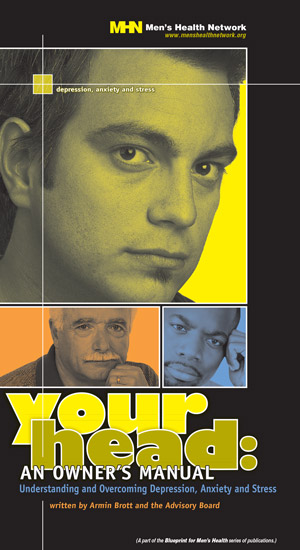Dear Healthy Men: As a man in recovery, one of my main concerns is keeping my job as I work on healing—I need the income to support my family. I’m making good progress, but want to avoid pitfalls that might derail me. What, if anything, should I expect regarding my recovery on the job? Also, what do I need to know about potential reactions from my boss and coworkers if I choose to open up about my recovery?
A: Excellent questions. Over 22 million Americans are in recovery, according to Dr. John Kelly of the Recovery Research Institute at Massachusetts General Hospital. And about 14 million people in the workforce are substance-dependent, according to the Substance Abuse and Mental Health Services Administration (SAMHSA). Overall, men are nearly twice as likely as women to suffer from Substance Use Disorder (SUD), although, given that men are half as likely as women to seek help for any health-related issue (mental or physical), that ratio is probably low, as many men’s addiction issues are undiagnosed or they’ve found recovery outside traditional treatment pathways.
Like you, many people in recovery, have legitimate concerns about other people’s preconceived notions about addiction and recovery. Many, for example, see addiction as a “personal choice”—and therefore less worthy of compassion—despite the fact that the American Medical Association has recognized it as a disease since 1987.
Clearly, we need to get past this type of stigma, particularly in the workplace. Many, if not most, men link their self-worth to their ability to support themselves and their families; that’s why people in the field often say that “recovery goes best with a job.” However, many stereotypically male behaviors—aggressiveness, competitiveness, enduring of hardships and setbacks, stoicism, and acceptance of traditional top-down chain of command—that often help men succeed in the workplace can put those same men at risk of a deadly relapse when in recovery.
Researchers at Fors Marsh have been working with key stakeholders in the world of recovery to determine worker needs and best practices and to study attitudes towards recovery in the workplace. One of their goals is to develop improved workplace guidelines and a pathway to a certification credential. Data on from their five-year project, which is still ongoing, is at https://www.forsmarsh.com/advancing-recovery-from-substance-use-disorder/.
Other useful resources for workers and employers include the Recovery-Ready Workplace Resource Hub from the Department of Labor at https://www.dol.gov/agencies/eta/RRW-hub and New Hampshire’s Recovery Friendly Workplace Initiative at https://www.recoveryfriendlyworkplace.com led by Governor Chris Sununu.
Recovery is a place where men can find solidarity, cooperation, and support, not just regarding SUD, but all issues around mental health. For men in recovery, issues like aging, family relationships, and self-worth are often hard to balance. At work, who are healing are serving two masters: their boss and their recovery. Both require loyalty and determination, and both are necessary for success. But only neglecting their recovery can cost a man his life.
Fors Marsh research showed that the supervisor is the single most important factor in the long-term health outcome for recovery in the workplace. Will a supervisor be fair? Are they supportive? Will they be encouraging, demanding, accommodating, or all of those? Is your workplace a Recovery Friendly Workplace (RFW)? Men must realize that their recovery and sobriety can be directly related to and dependent on the strength of their relationship with their supervisor. The research mentioned above is critical, because it gives men in recovery a solid understanding of how they’re expected to behave in the workplace, and what they should expect from their supervisor and employer.
Recovery-friendly workplaces can help individuals grow their recovery coping skills and live without shame. The recovery community says that a crucial part of a long-term and sustained healthy recovery is service to others. Peer leadership, via recovery in the workplace, can both save men their jobs and their lives.
As for next steps, try to find other men in recovery in your workplace and start an informal peer support group. And have a direct conversation with your supervisor about your commitment to your recovery as well as your need/expectations for workplace support.
Photo credit: https://pixabay.com/users/ri_ya-12911237/




Recent Comments